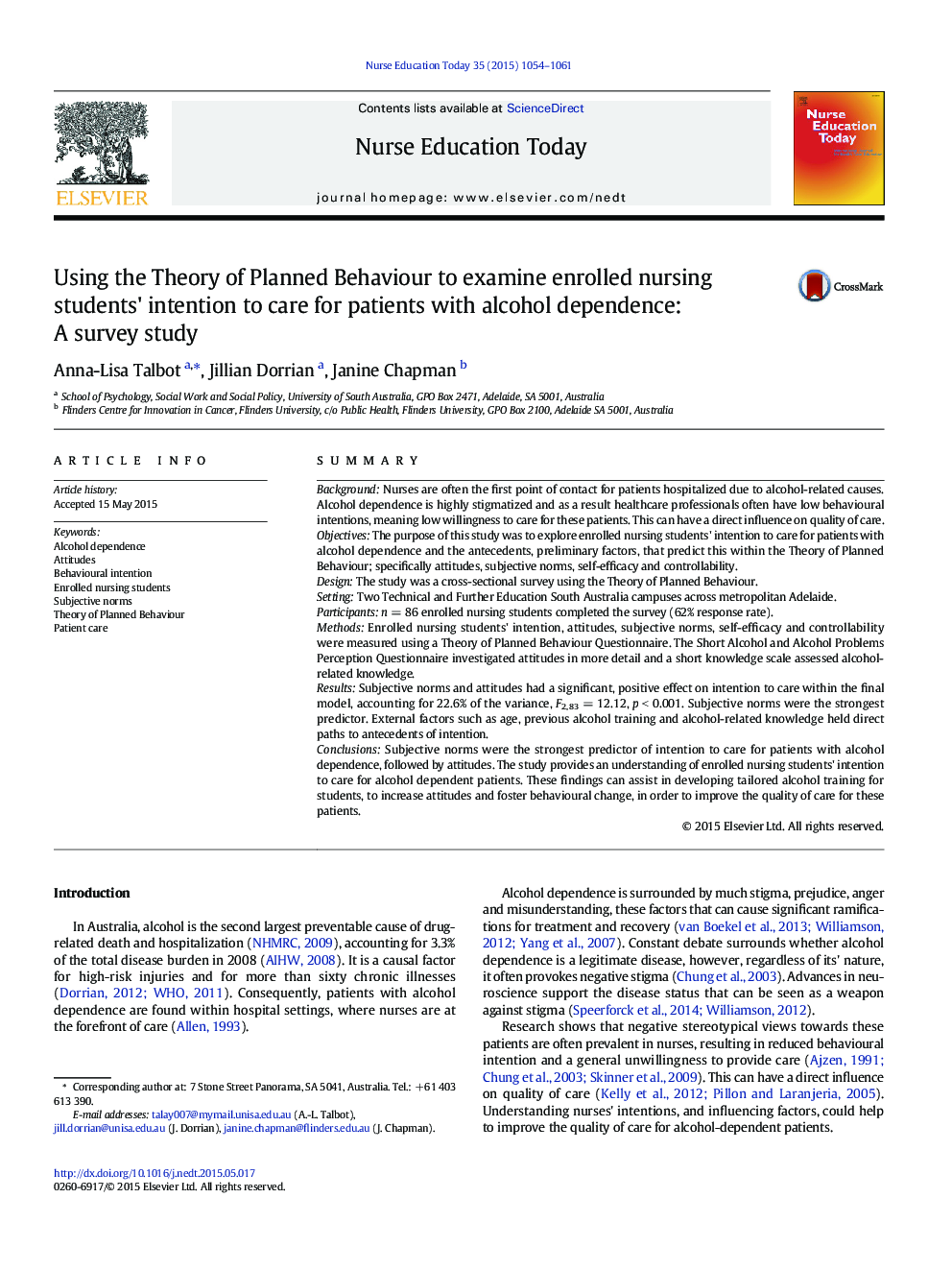| کد مقاله | کد نشریه | سال انتشار | مقاله انگلیسی | نسخه تمام متن |
|---|---|---|---|---|
| 368025 | 621556 | 2015 | 8 صفحه PDF | دانلود رایگان |
• Nursing students have low intention to care for patients with alcohol dependence.
• Subjective norms are the strongest predictor of behavioural intention to care.
• Personal attitudes positively predict behavioural intention to care.
• Students with previous alcohol training have higher subjective norms.
SummaryBackgroundNurses are often the first point of contact for patients hospitalized due to alcohol-related causes. Alcohol dependence is highly stigmatized and as a result healthcare professionals often have low behavioural intentions, meaning low willingness to care for these patients. This can have a direct influence on quality of care.ObjectivesThe purpose of this study was to explore enrolled nursing students' intention to care for patients with alcohol dependence and the antecedents, preliminary factors, that predict this within the Theory of Planned Behaviour; specifically attitudes, subjective norms, self-efficacy and controllability.DesignThe study was a cross-sectional survey using the Theory of Planned Behaviour.SettingTwo Technical and Further Education South Australia campuses across metropolitan Adelaide.Participantsn = 86 enrolled nursing students completed the survey (62% response rate).MethodsEnrolled nursing students' intention, attitudes, subjective norms, self-efficacy and controllability were measured using a Theory of Planned Behaviour Questionnaire. The Short Alcohol and Alcohol Problems Perception Questionnaire investigated attitudes in more detail and a short knowledge scale assessed alcohol-related knowledge.ResultsSubjective norms and attitudes had a significant, positive effect on intention to care within the final model, accounting for 22.6% of the variance, F2,83 = 12.12, p < 0.001. Subjective norms were the strongest predictor. External factors such as age, previous alcohol training and alcohol-related knowledge held direct paths to antecedents of intention.ConclusionsSubjective norms were the strongest predictor of intention to care for patients with alcohol dependence, followed by attitudes. The study provides an understanding of enrolled nursing students' intention to care for alcohol dependent patients. These findings can assist in developing tailored alcohol training for students, to increase attitudes and foster behavioural change, in order to improve the quality of care for these patients.
Journal: Nurse Education Today - Volume 35, Issue 11, November 2015, Pages 1054–1061
